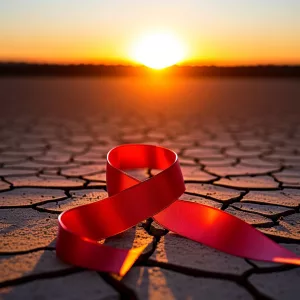South Africa’s coastal seafood towns are full of life, tradition, and fresh ocean flavors. Fishermen use old, careful methods to catch fish like snoek and kabeljou, keeping their deep bond with the sea alive. In small villages and bustling markets, locals and visitors share simple, delicious meals that celebrate the day’s catch and stories passed down through generations. These towns show how food can connect people to nature, history, and each other in a warm, genuine way.
Wings in Waiting: FlySafair’s Pilot Dispute and the Broader Story of Labour in South African Aviation
FlySafair’s pilots are upset because they feel their pay, work hours, and conditions aren’t fair, even though the airline offered a 5.7% raise. Backed by the Solidarity union, the pilots might strike, which could cause many flight delays and cancellations. This dispute shows bigger problems in South African aviation, where pilots and airlines often clash over fair treatment. The airline is trying to keep passengers informed and calm, but the future looks tense as both sides struggle to find a solution. This fight is a clear sign of the tough balance between workers’ rights and running a smooth airline.
South Africa’s rivers quietly carry more than water—they now flow with traces of lifesaving HIV medicines called antiretroviral drugs (ARVs). These drugs enter rivers through wastewater and disturb the delicate balance of aquatic life, from tiny snails to helpful bacteria. Although these medicines heal people, their presence in water poses new risks that current treatment plants struggle to remove. Scientists warn that protecting both human health and nature requires better technology, stronger rules, and teamwork to keep these vital rivers safe for the future.
Columbo is a young southern elephant seal who surprised everyone by visiting Victoria Bay, South Africa. His rare appearance drew lots of attention and sparked a strong community effort to protect him and his kind. People learned to keep their distance and respect wildlife, showing how a town can come together to care for nature. Watching Columbo rest and play gave everyone a special chance to see the wild ocean life up close. His visit reminds us how important it is to protect animals and live in harmony with the natural world.
Imkhitha Joya: A Champion’s Journey from Township Chessboard to National Inspiration
Imkhitha Joya is a young chess champion from a South African township who shines through her passion and hard work. Despite facing many challenges, she has become the U14 Girls Chess Champion, breaking barriers of gender and poverty. Supported by her community and coach, Imkhitha inspires many, showing that talent and dreams can grow anywhere. Her story is a bright light of hope, proving that with determination and help, anyone can reach great heights.
Refreshi is a smart South African app that fights hunger and food waste by linking businesses with extra food to people who want to buy affordable surprise bags. Every day, many good meals go to waste while many families go hungry, but Refreshi turns this problem around by making surplus food exciting and accessible. Users buy mystery bags filled with tasty leftovers at a discount, helping the environment and their communities. This simple idea creates a caring network where no food is wasted and everyone benefits.
Wings Over the Wild: How Direct Flights Are Transforming South Africa’s Safari Experience
Direct flights like FlySafair’s new route from Cape Town to Hoedspruit are making South African safaris quicker, cheaper, and easier to reach. What was once a long, complicated trip can now be a short escape, inviting city dwellers to enjoy wildlife adventures more often. This change is opening the wild to everyone, turning rare journeys into everyday delights, and bringing the magic of the bushveld closer than ever before.
Wiaan Mulder’s incredible innings in Bulawayo was a mix of power, skill, and deep respect for cricket’s traditions. Scoring an unbeaten 367 runs, he broke South Africa’s record but chose to stop short of chasing the world record out of humility and honor for the game’s legends. His calm leadership, balanced play, and sportsmanship made his performance unforgettable, showing that true greatness lies not just in numbers, but in character and respect. Mulder’s story will inspire players and fans for years to come.
Power, Policing, and Political Intrigue in KwaZulu-Natal: South Africa’s Enduring Crisis
KwaZuluNatal in South Africa is caught in a serious crisis where politics and police work are mixed with corruption and violence. Police leaders have accused powerful politicians of blocking investigations and protecting secret groups that control government contracts. This has sparked fear but also hope, as brave whistleblowers fight to expose the truth. Many people watch closely, wondering if the country’s leaders will truly stand up for justice and clean government. The future of democracy here depends on whether these challenges can be faced honestly and fairly.
Afrikaner white South Africans are leaving their country because they worry about violence, money troubles, and feeling left out. Their move to the United States, under a special policy, has caused lots of talk and argument on both sides. A funny puppet named Chester Missing uses sharp jokes to poke fun at the situation, making people laugh but also think deeply about South Africa’s past and present. The government says these fears are exaggerated and that all citizens face challenges, not just Afrikaners. This drama is more than just migration—it’s a big show about identity, history, and what it means to find a new home.
The National Sea Rescue Institute (NSRI) is a brave team that saves people in trouble along South Africa’s coast and wild places. When a father and son’s boat broke down at sea, the NSRI quickly arrived and brought them safely back to shore. At the same time, they helped a family in the forest whose teen got hurt, showing how teamwork and care stretch from ocean waves to rugged trails. These rescues remind us that the sea and nature can be beautiful but also dangerous, and being prepared is key. The NSRI’s work shines as a hopeful story of courage, community, and kindness along the wild coast.
White South Africans are moving to America because they worry about crime, money problems, and changes in South Africa’s laws about land and jobs. Their arrival has sparked big debates about race, identity, and history, with some American leaders calling it a rescue mission, while South Africa’s government says there’s no real danger. Famous people like Elon Musk have made the story louder, bringing old tensions to new places. This move is not just about people finding a new home—it’s tied up with politics, memories of apartheid, and hopes for a fair future.
South Africa’s fight against HIV faces a tough new challenge after international aid, especially from the US, was suddenly pulled back. This caused many clinics to close and thousands of health workers to lose jobs, leaving vulnerable people without the care they urgently need. Communities and local groups are stepping up, trying to fill the gap with their own efforts, but the road ahead is hard. The country now must find lasting solutions that don’t rely on outside help, holding on to hope and the spirit of togetherness.
South Africa is facing a big decision about its clean energy future. New import tariffs on solar panels, wind parts, and batteries could make renewable energy more expensive, slowing down how many people can afford it. While these tariffs aim to grow local factories and create jobs, they might also push green power out of reach for many families and small businesses. The country must find a balance between supporting local industry and keeping clean energy affordable for everyone. This choice will shape South Africa’s path toward a greener, fairer future.
Celebrate Mother’s Day in Cape Town in a fresh and exciting way! Start with a sunrise drive along stunning Chapman’s Peak, enjoy peaceful picnics in lush Kirstenbosch Gardens, or unwind with spa treatments overlooking the ocean or mountains. As the day ends, gather at Signal Hill to watch a magical sunset or get creative together in pottery painting workshops. These special moments turn Mother’s Day into an unforgettable adventure filled with love, laughter, and beautiful memories.
Siya Kolisi, South Africa’s first black Springbok captain and twotime World Cup winner, made a special visit to Gqeberha to inspire young rugby players. His surprise arrival at Nelson Mandela Bay Stadium filled the air with excitement and hope, as he shared his powerful story of hard work and triumph. Kolisi’s visit connected the rich rugby history of the Eastern Cape with the bright future of the Junior Springboks, showing them that dreams can come true. The day became a shining moment of mentorship, community pride, and the spirit of South African rugby coming alive.
















